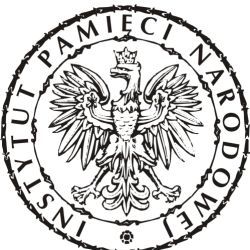In late July, the European Court of Human Rights in the cases PRANDOTA v. Poland (no. 29055/09) and HEINE v. Poland (no. 51209/09) submitted questions to the Polish state regarding Poland’s Law of 18 December 1998 on the Institute of National Remembrance, also known as the Institute Act. The Court’s questions center on whether the Institute Act violated respect for individuals’ personal lives and whether individuals accused of being former Communist collaborators had fair hearings. At the heart of these cases are fundamental questions about guilt and innocence, about being provided a meaningful opportunity to face one’s accusers.
The Institute Act’s benign name belies its power and scope. The Act establishes an Institute to serve as a research center and repository for documents concerning State security agencies and their activities between 1944 and 1990. It also charges the Institute with the responsibility of identifying and revealing former Communist secret agents and collaborators. Requests for disclosure are also determined by the Institute.
Mirosław Prandota and Adam Heine, Polish nationals who are the applicants in the two separate cases, made such requests to the Institute but were denied access to their personal documents. According to the Institute Act as amended by the Law of 18 October 2006 on the disclosure of information concerning documents of State security agencies between 1944 and 1990, everyone has a right to access documents concerning themselves. However, the Institute must refuse access to any person who sought documents whose contents indicated that he collaborated in any way with communist security services. In essence, accused individuals who contest the charge of collaboration are not able to see the basis for their culpability.
The Institute found that some of Prandota and Heine’s personal files indicated they were Communist collaborators. Thus, they would not be allowed to see those documents. Prandota and Heine denied that they were willing collaborators but were, nevertheless, denied access to their files.
The findings of Institute administrators can be appealed to Administrative Courts. However, as highlighted by Prandota and Heine’s appeal proceedings, the procedure for judicial review of disclosure decisions is dramatically skewed against the accused. In both Prandota and Heine’s appeals, first the Regional then the Supreme Administrative Court made their decisions based on private hearings closed to the public. The appellants were also not summoned to the hearing. Explanations for the courts’ decisions were not given to Prandota and Heine as section 32 § 6 of the Institute Act provided that written reasons of the court’s judgment would only be served on the President of the Institute. Thus, when the courts ultimately affirmed the Institute’s decisions, the two men were only given the courts’ operative judgments with no explanation of why they were deemed collaborators.
While collaborators and secret operatives should be held accountable for their actions, the determination of who is a collaborator or a secret operative becomes manifestly unjust if the accused are not allowed to review the evidence against them. In this instance, the Institute Act not only deprives Prandota and Heine a meaningful opportunity to contest accusations of being collaborators to oppressive Communist era security forces, their accusers and the courts are even statutorily protected from having to provide a rationale for the accusations.
This is not the first time controversy has surrounded disclosure issues in the Institute Act. Prior to the most recent amendments, the Institute Act only allowed “wronged” individuals to access documents concerning themselves. However, on 26 October 2005, the Constitutional Court of Poland ruled such a provision was unconstitutional in case no. K 31/04. The provisions were incompatible with the Polish Constitution’s protection of private life and guarantee of the right of access to official documents concerning oneself. When the Polish legislature amended the Institute Act in 2006, the ability of the public to access Communist era state security documents was broadened. Still, one key constituency, those whose files contain some evidence of collaboration, was purposely deprived of the opportunity to review the allegedly incriminating information the State had collected about them.
This should be troubling. Respect for ones private life and access to information is oftentimes most important for those who are accused of wrongdoing. Accusations, the reasons and evidence for those accusations should be fully transparent and disclosed especially to those who face the consequences of such charges. Anything less becomes too reminiscent of the anonymous finger-pointing and condemnation documented within the Institute of National Remembrance’s files.
Note – The facts and laws in this article comes from the statement of facts in PRANDOTA v. Poland (no. 29055/09) and HEINE v. Poland (no. 51209/09)
*Lin Ting Li – Legal intern for the Strategic Litigation Program of the Helsinki Foundation for Human Rights and candidate for Juris Doctorate at Columbia University School of Law





